Wall cladding if you feel bored with your wall decorations
Like changing seasons, people’s tastes also differ. Today everyone likes simple colours and plain designs on walls. Tomorrow they may choose something else. In many occasions, we have witnessed the comeback of old shades and designs back to our interior walls. So, through this column let me give you a brief description on wall cladding, if you want to give a distinct look to your walls. Wall cladding is also known as siding.

Image source: Pixabay
Different derivatives of wall cladding
Natural stones, tile, metal, glass, wall papers, Bangalore stones, terracotta tile, concrete title, wood, custom made and design borders – wall cladding offers you plenty of derivatives. If you want to give an antique or traditional look to your walls, wood cladding is the best. An artist with creativity can beautifully draw patterns on wall, resembling real wood a lot. If natural stones like lime stone, sand stone or slate stone are stick on walls for designing it gives a natural look to your walls. You can design a part of your wall using natural stones or just to highlight a border. Semiprecious stones which cost 800 rupees or above, per square feet are also available, if only you want to make your interior royal. You can attain the same finish in cheap cost suing tiles. Tiles with same finish and different patterns of natural stones are available in the normal price range 60 rupees to 200. Imported pieces are also available that may cost above 800 or 1000 rupees.
Metal and glasses are other variations. If you use glass wisely, you can create magic on walls. But metal cladding is a bit expensive. You can use stainless steel, copper and even 24-caret gold for metal cladding. The magical features of metals to mould to any shape give it a unique position in wall cladding architecture.

Wallpaper cladding Image source: Amazon India
Wall paper is cheap. But now vinyl backing wall papers are also available. You can choose any colour, picture and pattern for wall decoration. When you feel bored with a pattern you can change it easily too. If you create your own patters by using your creativity, then it becomes custom made. You can choose bricks, stones, cloth or any material you like.
You can use concrete or terracotta tiles also. Bangalore stone is also popular nowadays. Now designing borders are also available that can be used not only to highlight a particular object on a wall, but also to give borders to dining tables, chairs, cup boards and staircase.
Clad your walls with natural stones
To increase the beauty of walls for your home, wall cladding is the best option. Not only for new homes, but also, as a part of renovation, you can bring a new glory to your home by wall cladding. Natural stone is quite popular among all. Of all types sand stone, lime stone and slate stone are most common. You can use natural stones like Cotta, Dholpur stone and Bangalore stones for your interior. These stones are most commonly found in Rajasthan, Himachal Pradesh and Haryana. Though a bit expensive, semi-precious stones are also used for this purpose.

Image source: Indiamart
Price range of natural stones is 200-900 rupees and that of semiprecious stones, around 800-900. According to pattern, you can fix stones in different sizes and shapes. Stone slabs are also available, that are ready-to-fix. They are made using fiber or nylon meshes and can be plastered while fixing on walls.
Liquid gum with cement mixture is used to fix these natural stones on walls. In some patterns spaces between stones will be there that can be filled using joint fillers. Joint fillers are also available in different colours, to enhance the beauty of precious stones, by matching them most. In India, contrast colour fillers are popular while in foreign countries, exactly the same shades.
Patterns used in natural stone cladding
Stocking, interlocking, mosaic, square, square ledger and waves are the most common patterns. If you are interested you can design murals of your favourite pictures also. They are available in 10 mm size to 1X1 feet.
Advantages and disadvantages of natural stone cladding
They can be fixed on curved surfaces like pillars. As they are natural stones, their shades never fade. Also natural colour variations are found in these stones, adding a natural and elegant look to walls. Also, such variation in shades can never be created artificially.
They are non-resistant to stains – the defect of natural stones. So use a sealer coat to avoid it. It can resist fungal attack only if coated with sealers. Sealers are available in two varieties – white look and oily type. Choose one of your favourite.
Decorate your walls with Bangalore stones

Wall Cladding Stone Image source: Indiamart
In South India, stone cladding became popular through Bangalore stones. Since these stones were brought from Bangalore, they got the name so. Cladding is a process to furnish the walls of interior or exterior using stones, wood, metals, glass pieces or anything else. When an artist draws his own imagination on walls using these materials, it gives a distinct look to your home.
Different types of Bangalore stones
Bangalore stones are available in two varieties. Tile and finish are the common types of Bangalore stones. Tiles are available as layers or sheets with half square feet width and one inch thickness. Basically they are granite pieces. Rustic finished pieces come under finish type of Bangalore stones. Now joint-free tiles are also available in market.
Colours and its prices
Bangalore stones are available in black, red, yellow and grey shades. In normal cases, their prices vary in the range 90-140 Indian rupees. Price is high for yellow and red coloured stones and joint-free types too.
A small note on its design and advantages
Bangalore stones are most commonly used for exterior decorations. It’s best suited for wells, outer walls, boundaries etc. They are fixed in the same way normal tiles are fixed. They are stick on to the rough surfaces.
Bangalore stones are ready to fix pieces and hence they can be used easily. It reduces labour cost as well as furnishing and finishing time. It does not require polishing or painting. They are resistant to moisture as well. That’s the reason why they are used for outer walls that require high resistance to rain, sunlight and other climatic variations. The most significant feature to note is that as time passes by, these stones shine better. These stones can be beautified by applying joint filler in between the stones.
Cladding walls with tiles
If you want to clad your walls with tiles, it can be done in a few variations. Here are a few.

Image source: Indiamart
Tiles with finish of stones and wood
Tiles are available in the same finish and design of natural stones; you just need to buy them and fix on walls. Wall cladding tiles is available in three derivatives – ceramic, porcelain and vitrified. Cladding tiles is available in different finishes like wood, bamboo, bricks, metal and leather. In a quick glance it appears natural. Newly added categories are geometric designs, louver design and wallpaper finish. It’s also possible to do murals in tiles and create your own designs.
Starting price of a tile is 50-60 rupees and imported varieties are available in the price range 150-1000 Indian rupees.10×50 cm to 30×60 cm pieces of tiles is available in market. According to patterns, its length and thickness may vary. Tiles can be fixed to walls after plastering. Advantage is that you can peel them off anytime you desire. They are easy to clean than natural stone walls. It may get fungal attack, so you need to apply sealer. Its demerit is that it can be fixed only on straight and plain walls without any projected area or curves.
Concrete tiles
The word cladding became popular through ‘concrete tiles’. Before stone and tile cladding, there existed concrete tile cladding. Concrete tiles of different colours and shapes are available. In addition to common rectangle and square designs, hexagon and arrow shapes are also seen. Advantage is that we can mix different shapes of tiles to get a distinct pattern.
Tiles resembling wood and bamboo, and tiles with small flower designs can be used anywhere in your interior. Concrete tiles are available in smooth and rustic flavours in terracotta and granite varieties. Now more than 20 colours are available. Its price is around 70 rupees per square feet and is available in pieces of size 50 mmx120 mm onwards. If you want to highlight your exterior, concrete tiles are the best. You can use them for your outer walls, well and courtyard also. It’s fixed the same way as normal tiles are fixed, using gum.
They are highly durable and last up to 10 years and highly resistant to fungus. But as time passes by, its charm fades. Though we can restore its colour through paints, its patterns will be lost.
Giving an antique touch to walls through wood cladding
It’s possible to give new definitions to your walls through wood cladding. Though this designing is given name ‘wood cladding’, in most cases processed wood or wood products are used for this purpose.

Image source: eBay
Wood products – HDF, MDF and multi-wood, the processed layers of wood from wood waste, plywood, veneer from thin layers of different wood types and laminated wood are used for wood paneling.
Finish – Wood is chosen according to the characteristics of your interior. Teak or teak coloured processed wood is used for traditional homes. Instead of cladding, hard wood like teak may be used for decorating walls. They are fixed on walls for paneling. In modern style homes, MDF, particle board, veneer or laminated wood serve this purpose.
Colour – You can paint your favourite colours on HDF, MDF or particle board. Automotive paint is used for this purpose. Plywood and veneer are available in any colour shades, light or dark. Yet dark colour of mahogany is popular. Nowadays veneer is more popular than plywood.
Price – According to quality price may vary and in most cases, there is vast difference. Normally, prices start from 60-70 rupees onwards.
Measurement – The material for wood cladding is available in the form of sheets that can be cut into desired units. It is fixed using gum used for wood.
It can be used for – Wood cladding is most commonly used for highlighting borders or a particular wall or design. It can be used in pillars, head board of beds, niches or to decorate a part of your wall in living room.
Advantages – It can be done even after home furnishing. It resists pests. Almost all materials made from wood particles can be cut into desired sizes and layers. It can be given any colour shade as well.
Disadvantages – It is not resistive to water and moisture. If attacked by water, those areas may project like bubbles on surface. Edges may separate in the case of MDF and particle board. Maintenance is difficult and full replacement is the only solution.
Terracotta tiles for wall cladding
Among all types of wall cladding, using terracotta tiles stands very near to nature and it is eco-friendly too. It suits both traditional and modern style of home construction. It’s available in rectangle and square pieces in terracotta colour. Cladding is a type of architecture used on walls if you feel bored with plain colours. It’s also used to highlight a decorative item or a part of wall and to draw borders that need quick attention. Terracotta tiles are normally used for exterior, well, well walls, outer walls and courtyard.

Image source: Indiamart
Terracotta tiles are available as plain floor tiles. It’s also available in bamboo and pleated designs. Smooth and rustic finishes can give you distinct look to your interior. Choose one that you feel the best. Its price starts from around 23-25 Indian rupees and is available in different grades. Normally three grades are available and its price differs according to its grade. It’s available in pieces 8X4, 9X3 and 6X6 inches size.
Terracotta tiles can be fixed on walls like normal tiles. You need to make a rough surface on which terracotta tiles can be fixed. As they are natural, they give a traditional touch or antique look for your exterior. They are highly durable and can last for years. They are highly resistant to fungal and fern attack; they can be washed and cleaned using water. It helps to reduce temperature inside your rooms.
Art piece: Terracotta tiles that can be fixed on walls of courtyard and interior walls are also available. Normally ‘a theme’ will be specified on those tiles, if used for decorative purposes. When different Terracotta tiles are joined together they visualize a theme. Different themes like Krishna, Jesus and Siva are readily available in market. Thus Terracotta tiles can be used as art pieces too, with a natural touch.
Create your own styles on walls using custom-made cladding
If it is possible to create our designs on our interior walls by mixing different items, how will it look like? Isn’t it a nice idea than using repetitive ideas and boring designs to fill our walls? Here comes a new style of wall cladding – custom-made where you can design your walls using wood, stone, glass or anything else. Preference is given to its arrangement and pattern than the choice of materials.

Image source: Indiamart
Bricks/natural granite
Earlier unpolished wall of bricks or natural stones used to be a fashion quotient. Now using them as a thin layer on walls, as a part of interior designing is the new trend. From one inch thickness, sheets are available in any size or thickness. They can be used anywhere, interior or exterior. As required they can be rubbed or scratched for cleaning purposes. They are equally effective on both traditional and modern homes.
Leather finish for class look
If you have enough money to spend lavishly for your home, leather cladding is the best idea. Head boards of beds, wall around the head board and wall behind the settee of your living rooms can be given a posh look with the help of lather cladding. Thin foam is pasted on wooden pieces, then laminated with leather and then fixed on walls using gum.
Cloth cladding – a bit expensive
Though fabric wallpapers are popular, in a few cases cloth pieces are directly used for cladding on walls. Expensive stuff can also serve this purpose. Row silk and jute are used for this purpose.
Pebbles for exterior
It’s commonly used for outer walls and well. Before concrete dries, pebbles are fixed on walls to give this design. You can experiment with your tastes while doing this decoration. Pebbles – big or small, tile pieces of any size, thin granite sheets and glass pieces can be used for this purpose. Using glass mosaics and mosaic tiles you can create your own designs.
Though these common materials are used for custom-made cladding it depends on the artist’s talents and creativity to make it distinct and attractive. That means, only expensive materials used cannot determine the beauty or perfection in design. If you have imagination, you can design a wall of your interior with every waste of your home construction! Happy Cladding!
Also read a few more articles related to interior design style and architecture. Click on the images in the gallery to read


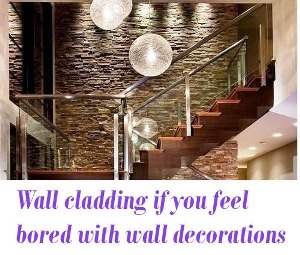



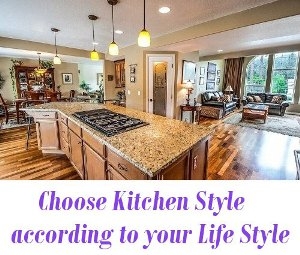
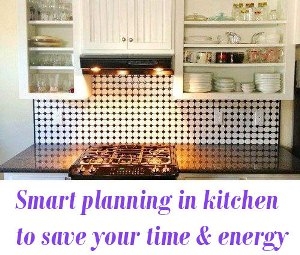

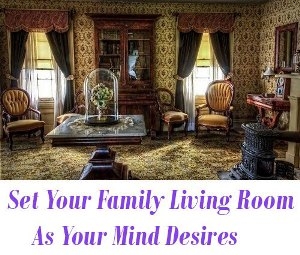
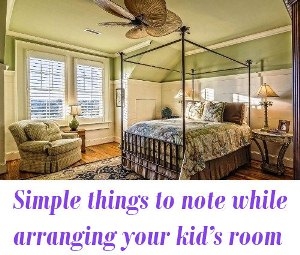

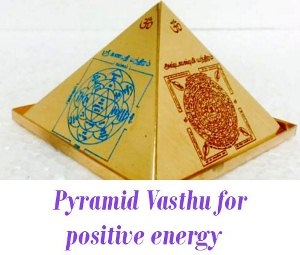






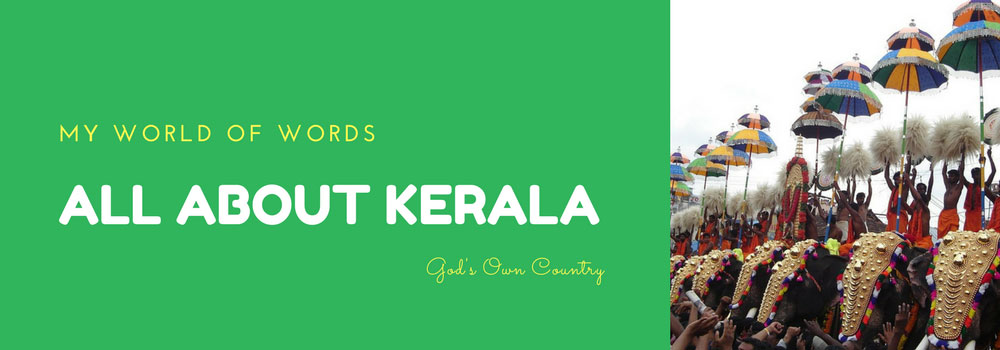

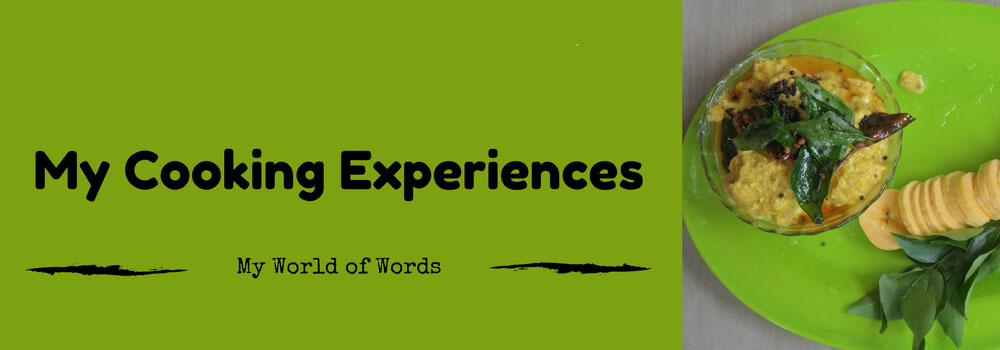



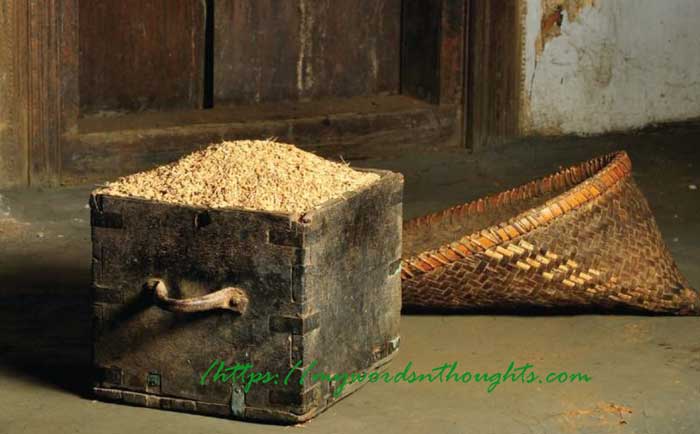
Recent Comments